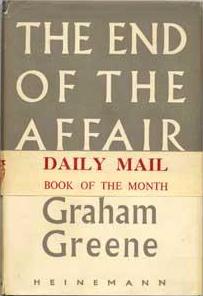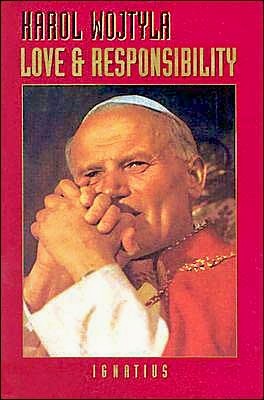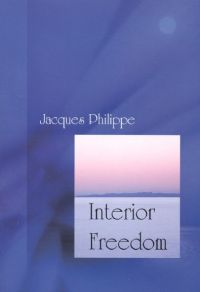Have you ever thought how different life would be without books?
As a bibliophile since my earliest days and someone who still prefers a book to a screen, I cannot imagine my life without books.
In fact, it wouldn’t be my life at all.
And that got me thinking:
What are some of the books that have had an impact on my life? The list could probably run into the hundreds – and then there are all the books that have affected me in ways I don’t realize. But I wondered if I could come up with a shortlist.
In honour of
International Book Day today, here are four books without which my life would look very different.
1. Robin Hood – Illustrated by Greg Hildebrandt/Story by J. Walker McSpadden
In England, they have a radio program which I love called
Desert Island Discs. After discussing the guest’s life and several songs they would take with them to a desert island, at the end of the program, the guest has to choose just one song. They also get a luxury to bring with them and a book (to go along with the Bible and the complete works of William Shakespeare).
I know without a doubt the one that I would bring with me to my desert island: Robin Hood. And not just any version, any edition. It would have to be the one written by J. Walker
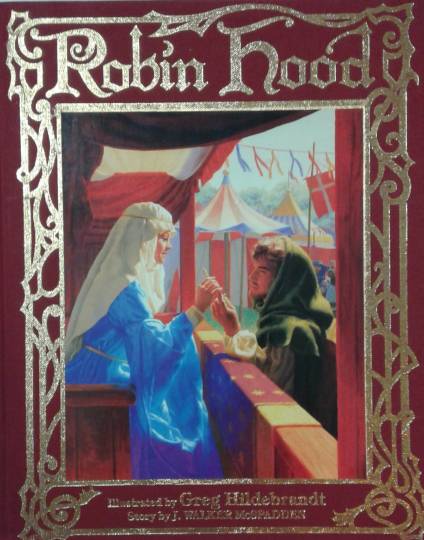
McSpadden and brought to life by Greg Hildebrandt’s sumptuous illustrations. And not just any copy but the one my grandparents gave me when I was nine years old.
It’s the sort of book that captures a child’s imagination and it certainly did mine. Not just the writing and the pictures. Its large, clothbound cover with gold-embossed lettering and its thick, glossy pages were unlike any other book I had. It was a thing of beauty. I thought so then, and I think so now. It is one of the few childhood possessions that have come with me this far. And not by accident.
The book is beautiful, and the story captivated me, too: the adventure, the romance, the conflict, the archaic expressions. I probably read it at least once a year. And though it would be far too simplistic to try to show exactly how this one book informed my outlook on life,
I can see how it – and other books like it – taught me about virtues like courage, loyalty, and justice.
Now that I have nieces and nephews, I spend more time in the children’s section of bookstores, especially close to Christmas. And I am struck by the enormity of the selection – it’s overwhelming! – and also by just how many very poor books there are for children.
Books should be beautiful. They should be fun. They should educate without lecturing. They should edify without preaching.
I certainly read some bad books in my day. It was unavoidable. I read everything I could get my hands on.
But the good ones were there, too. And they endured. Thank God for that.
2. The End of the Affair by Graham Greene
“We read to know we're not alone,” says a character in the movie
Shadowlands to his teacher, the Christian author and academic CS Lewis.
One day as a graduate student, I remember I was in need of some light reading – some fiction to help me de-stress at the end of a long day of intensive research and writing. As I perused the shelves of the English lit section of my college library, my eye was caught be a title:
The End of the Affair.
It seemed to ring a bell, so I checked it out and brought it home.
Source: Wikimedia Commons
It was not what I had expected; I was very surprised – and pleased – by its religious character, though it was very different from the more pious literature I was familiar with.
And it started me on my own love affair – with the novels of Graham Greene.
But that’s not why it made it onto my shortlist.
Towards the end of the book, there were two sentences which struck me in a profound way. I won’t say which – that would be revealing too much. But they expressed the sorts of thoughts that lie in the deepest places of the human soul.
They were my thoughts, and until that moment I had thought that they were only my thoughts. After that moment, I always knew that I was not alone.
I had always read books as entertainment. And especially when it came to fiction, I expected nothing more. I had no idea that they had more to offer. But there comes a time in the maturity of every reader – at least there should come a time – when they discover that
books – and fiction especially – offer a window into the profoundest depths of another’s soul.
And then they will know that they are not alone.
3. Love and Responsibility by Karol Wojtyla
I’m not sure how it is that I came to read
Love and Responsibility. It was a combination, I guess, of need, curiosity, and the Holy Spirit.
We as a Church do a terrible job of educating ourselves and others about Catholic teaching on sexuality and sexual morality. It is something secret, hidden. It makes us uncomfortable. We would rather not talk about it.
My education on this topic could be summed up as:
Don’t have sex before marriage. That’s bad. And after marriage, don’t use birth control. That’s also bad.
And that was fine when I was seventeen. Fear was a great motivator.
But at twenty-five, I needed more, especially living as I did among young people in an English university – a society which was not only sexually permissive but also intellectually demanding:
Believe what you want, but explain to us why.
And I didn’t know why.
Then “by chance” as I was browsing the shelves of our small “library” at the Catholic chaplaincy, I happened to pull down a book called
Love and Responsibility with a photo of Pope John Paul II on the cover (though it had been written under his former name).
Source: Wikimedia Commons/Copyright owned by William Collins Sons & Co. Ltd., London and Farrar, Straus and Giroux, Inc., New York
So I checked it out and read it.
This was the first time I can recall having read something this heavy in reference to the faith or the moral teachings of the Catholic Church.
It was a revelatory experience, and it had several immediate and long-lasting effects on my life.
- I understood with a certain amount of clarity, which I had never had before, not only the reasoning behind specific teachings regarding sexual morality but also how all these specific teachings fit together as a whole and also within the broader framework of our belief in the intrinsic dignity of the human person. And I began to see Catholic teaching in general as a coherent whole.
- It gave me a glimpse into the wonderful depth of thought behind the teachings of our Church. And I was astounded by the frankness and openness with which various aspects of sex were discussed. It certainly was not what I had been led to expect from a bunch of celibate old men. Reading Love and Responsibility gave me a greater confidence in the Magisterium of the Church – a greater trust in the thought and reasoning behind its teachings.
- It helped me come to a more mature, more profound, and less self-centred understanding of human relationships. We are social beings. We belong together, work together, rely upon one another. It is natural and it is good. But we should be wary of using one another in ways contrary to our dignity as human beings. And I still find myself from time to time referring in my mind to the lesson found at the very beginning of Love and Responsibility and asking myself: “Am I treating this person as a person or as a tool?”
4. Interior Freedom by Fr. Jacques Philippe
Every once in a while in a life, if we’re very lucky,
there comes a book with the power to change our life completely, to get inside and change the way we think, the way we live – even if no one else notices.
For me, that book was Fr. Jacques Philippe’s
Interior Freedom.
Once, on a visit home for Christmas, an old friend gave me a copy of a book which she had found helpful in her own life. I was grateful as always for any gift of a book, but I decided not to read it right away. And so this tiny purple volume sat on my bookshelf and moved successively from bookshelf to box to bookshelf as I moved from home to home.
Finally, as I was getting ready to leave England and move back to North America, as I was performing a painful cull of my beloved collection of books, I made an effort to read the ones which had patiently been waiting their turn. And so it was that at this difficult moment in my life, I decided to read
Interior Freedom during the Triduum and in preparation for Easter.
If you have not yet discovered
Fr. Jacques Philippe, please do. I have read several of his books.
They are all short, beautiful, profound, and written with the simplicity of a true spiritual master – someone who truly understands. But
Interior Freedom is still my favourite, though it wasn’t until the third reading that I was finally able to accept some of its harder truths.
With straightforward simplicity, Fr. Jacques shows us how we allow ourselves to be trapped by past hurts, present difficulties, resentments, and feelings of helplessness. Then he shows us how we have the power to move beyond those things and even to choose them –
not with resignation but with confidence and a sense of ownership and with a liberating trust in God.
He showed me how my deepest struggles were of my own making. Though they had their origins in other people’s actions and in events beyond my control,
it was within me to choose whether or not and how much control they had over my life. And I admit that I rejected that particular idea at first, though I now recognize its validity.
Who can say why a specific book read at a specific time can have the power to change a life?
All I know is that since that Triduum, my life has not been the same. I live my life with greater joy, greater freedom, and greater trust and abandonment to God.
What books have had an impact on your life? Let us know!
Tell us on Facebook and Twitter!
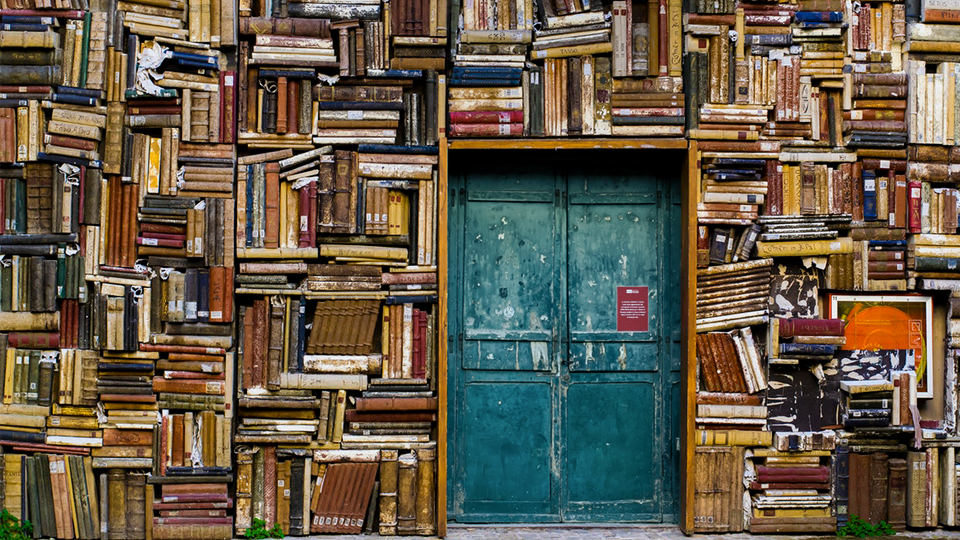
 McSpadden and brought to life by Greg Hildebrandt’s sumptuous illustrations. And not just any copy but the one my grandparents gave me when I was nine years old. It’s the sort of book that captures a child’s imagination and it certainly did mine. Not just the writing and the pictures. Its large, clothbound cover with gold-embossed lettering and its thick, glossy pages were unlike any other book I had. It was a thing of beauty. I thought so then, and I think so now. It is one of the few childhood possessions that have come with me this far. And not by accident.
The book is beautiful, and the story captivated me, too: the adventure, the romance, the conflict, the archaic expressions. I probably read it at least once a year. And though it would be far too simplistic to try to show exactly how this one book informed my outlook on life, I can see how it – and other books like it – taught me about virtues like courage, loyalty, and justice.
Now that I have nieces and nephews, I spend more time in the children’s section of bookstores, especially close to Christmas. And I am struck by the enormity of the selection – it’s overwhelming! – and also by just how many very poor books there are for children.
Books should be beautiful. They should be fun. They should educate without lecturing. They should edify without preaching.
I certainly read some bad books in my day. It was unavoidable. I read everything I could get my hands on.
But the good ones were there, too. And they endured. Thank God for that.
McSpadden and brought to life by Greg Hildebrandt’s sumptuous illustrations. And not just any copy but the one my grandparents gave me when I was nine years old. It’s the sort of book that captures a child’s imagination and it certainly did mine. Not just the writing and the pictures. Its large, clothbound cover with gold-embossed lettering and its thick, glossy pages were unlike any other book I had. It was a thing of beauty. I thought so then, and I think so now. It is one of the few childhood possessions that have come with me this far. And not by accident.
The book is beautiful, and the story captivated me, too: the adventure, the romance, the conflict, the archaic expressions. I probably read it at least once a year. And though it would be far too simplistic to try to show exactly how this one book informed my outlook on life, I can see how it – and other books like it – taught me about virtues like courage, loyalty, and justice.
Now that I have nieces and nephews, I spend more time in the children’s section of bookstores, especially close to Christmas. And I am struck by the enormity of the selection – it’s overwhelming! – and also by just how many very poor books there are for children.
Books should be beautiful. They should be fun. They should educate without lecturing. They should edify without preaching.
I certainly read some bad books in my day. It was unavoidable. I read everything I could get my hands on.
But the good ones were there, too. And they endured. Thank God for that.
